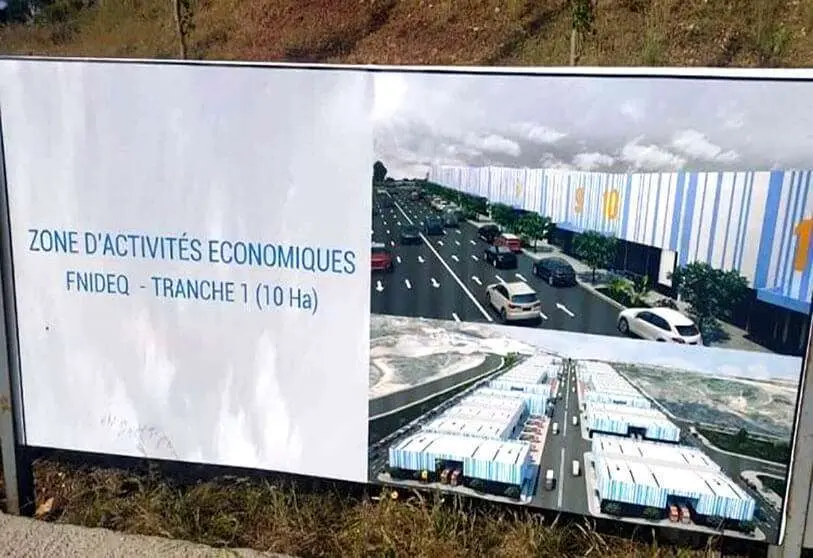Marruecos construirá una zona franca comercial en la frontera con Ceuta

The Moroccan authorities have officially started the construction of the new free zone in Castillejos (Fnideq, in Arabic), located two kilometres from the border with Ceuta. Two objectives stand out: on the one hand, to create employment; and, on the other hand, to increase profits by increasing export operations. However, this initiative also has a priority in terms of security: to put an end to smuggling operations between this region and the Spanish city of Ceuta.
Morocco had decided to close Ceuta's door to any smuggling-related operation in order to preserve the competitiveness of the national product of its region, as reported by the media Panora Post. Thus, the creation of this new space in Castillejos is part of the strategy initiated by Rabat in the last months of 2019 to put an end to smuggling and offer an alternative employment to the thousands of Moroccans who earned their living by carrying it directly or indirectly, as explained by El Faro de Ceuta. This border closure led to an unprecedented economic recession and a collapse in property prices, according to the Youtube channel Histoire du Maroc. This situation also caused widespread unemployment among the population of the cities of Fnideq, Tetouan and M'diq, as well as the closure of hundreds of shops.
Therefore, this area, which covers about 90 hectares, is intended to become a focus for job creation and to boost import and goods transit agreements in the city of Sebta. The Agency for the Promotion and Development of the North and Med Zone of Tangier and the Agency for the Promotion and Development of the North (APDN) and Tanger Med Zones are the owners of this area. For the moment, the total cost of the investment has not been officially announced, although the price of the works amounts to 91.5 million dirhams (almost nine million euros). In the first phase of the refurbishment of the area, roads, sewerage channels, the communications network, remote safety inspection, control crossings and protection systems will be prepared.

The International Labour Office defines Export Processing Zones (EPZs) as "industrial zones with special incentives set up to attract foreign investors, in which imported materials undergo some degree of processing before being (re)exported again". The dictionary of the Royal Spanish Academy considers that the EPZs are a "local space within the customs territory of the Union, designated by each Member State, which is characterized by the non-application or refund of import duties of the Community tariff within its perimeter".
In Morocco, there are currently more than five free zones: Export Processing Zone of Tangier; Free Zones at Tanger Med Ksar el Majaz Mellousa 1 and 2; Free Zone in Dakhla and Laayoune; Free Storage Zone of hydrocarbons: Kebdana and Nador; and Export Processing Zone in Kenitra. Each of these areas has been created and delimited by a decree establishing the nature and activities of the companies that can be set up, as explained by the Moroccan Investment Development Agency.
The coronavirus pandemic, which has infected more than 7,866 people in Morocco, of which at least 200 have lost their lives, had forced a delay in the start of these works. This area aims to transform commercial activity on the other side of the border, especially that of those people who have been affected by the end of smuggling. The beginning of the construction work "opens a new era in the economic configuration of the Moroccan province neighboring Ceuta", as stated in the web portal Ceuta Actualidad.








